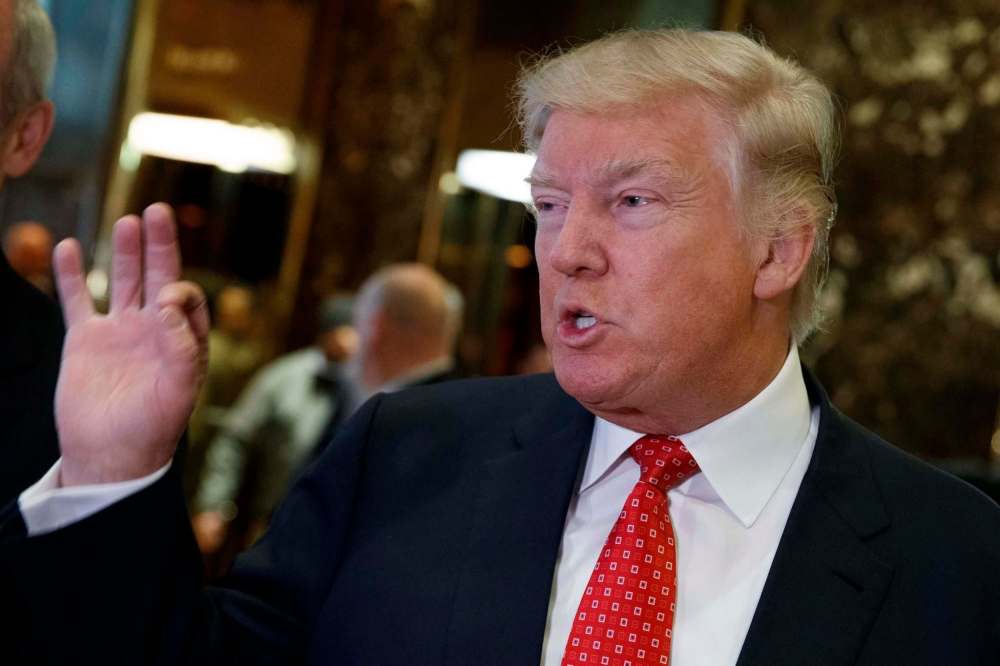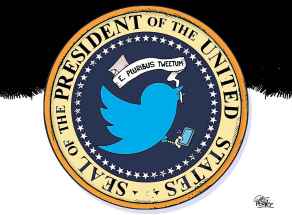Study reveals simple truth about fake news
Read this article for free:
or
Already have an account? Log in here »
To continue reading, please subscribe:
Monthly Digital Subscription
$19 $0 for the first 4 weeks*
- Enjoy unlimited reading on winnipegfreepress.com
- Read the E-Edition, our digital replica newspaper
- Access News Break, our award-winning app
- Play interactive puzzles
*No charge for four weeks then billed as $19 plus GST every four weeks. Offer only available to new and qualified returning subscribers. Cancel any time.
Read unlimited articles for free today:
or
Already have an account? Log in here »
Hey there, time traveller!
This article was published 06/08/2018 (2340 days ago), so information in it may no longer be current.
Do you know what “fake news” is?
If you’re like most Canadians, you think you know what it is, but you may not.
A recent study done for Vividata, which does surveys of newspaper and magazine readership in Canada, found widespread concern about fake news, but limited understanding of what it is.

There is a strong belief — fuelled daily by rants from U.S. President Donald Trump — that fake news is published, broadcast and otherwise spread daily by mainstream news media outlets such as the Washington Post or the Winnipeg Free Press.
It is not. Fake news is deliberate misinformation, written with the intent to mislead, usually in order to damage someone or something, or to gain financial or political advantage.
For example, it’s a report that Justin Bieber told a Bible study group that the music industry is run by pedophiles. Despite being debunked as a “lurid fabrication,” this claim continues to circulate on the internet.
In Trump’s world, fake news is negative press coverage of his presidency. He uses the term to bash CNN and the New York Times and to implore his followers not to believe anything from such media outlets. By doing so, Trump has become the biggest purveyor of false information about fake news.
Trump’s continued misuse of the term, and constant attacks on serious news outlets, has had a worldwide impact. Dictators and authoritarian regimes have seized on it to crack down on media reporting that they do not like, even to pass laws that allow them to throw journalists in jail.
If you think there has been no impact in Canada, think again.
Mainstream news outlets do not deliberately fabricate news. If they did, they would not stay in business long. You may disagree with what a news outlet reports on, the angle of a story or the opinions expressed. You may think only trivial news is covered and that important stories are ignored. But none of this represents fake news.
The Vividata study found six out of 10 Canadian adults believe fake news means a mainstream news organization has deliberately fabricated news.
This is false. Mainstream news outlets do not deliberately fabricate news. If they did, they would not stay in business long. You may disagree with what a news outlet reports on, the angle of a story or the opinions expressed. You may think only trivial news is covered and that important stories are ignored.
But none of this represents fake news. It simply means it is not your cup of tea.
About four out of 10 Canadians also think fake news implies that a story is factually incorrect, according to the Vividata study. This is not fake news, either. A factual error is simply a mistake. News outlets make them regularly. Responsible news outlets make every effort to correct them once they are discovered.

There is real reason to be concerned about fake news. After the 2016 U.S. presidential election, an analysis of Facebook traffic found the top 20 fake news stories received more engagement than the top 20 election stories from major media outlets.
In other words, deliberate misinformation got more attention than fact-based, independent journalism. That is a reason for anyone who cares about democracy to be concerned.
It appears Canadians are taking their own steps to guard against fake news. About half of the people surveyed for Vividata say choosing more credible news sources — such as traditional newspapers, TV and radio — is an effective way to tackle fake news. A strong majority trust these news outlets far more than purely digital outlets and social media.
Most people surveyed see the importance of quality news and journalism — eight out of 10 believe the health of our democracy depends on journalists reporting the facts accurately.
There should always be a debate about whether news outlets such as the Winnipeg Free Press are acting responsibly. But let’s not confuse this with the debate over what should be done about fake news.
Bob Cox is publisher of the Winnipeg Free Press.

Bob Cox
Publisher
Bob Cox was named publisher of the Winnipeg Free Press in November 2007. He joined the newspaper as editor in May 2005.
Our newsroom depends on a growing audience of readers to power our journalism. If you are not a paid reader, please consider becoming a subscriber.
Our newsroom depends on its audience of readers to power our journalism. Thank you for your support.










